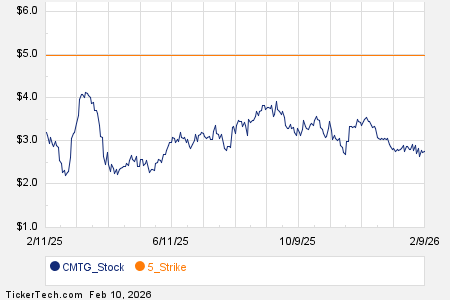Is Rigetti Computing a Smart Investment in Quantum Tech’s Rise?
With shares increasing by 223% this year, Rigetti Computing (NASDAQ: RGTI) is attracting attention as quantum computing gains traction on Wall Street. While not as sensational as the latest trends in artificial intelligence (AI), this sector could significantly reshape industries over time. Let’s explore whether Rigetti holds the potential to generate substantial returns for investors.
Understanding Quantum Computers
Quantum computers utilize the principles of quantum mechanics to address challenges much more rapidly than traditional systems. Though the field remains primarily in the research and development phase, analysts from McKinsey predict it could contribute $1.3 trillion to the economy by 2035. Most growth is anticipated from sectors such as pharmaceutical development and materials science.
Additionally, quantum computers may play a significant role in training AI algorithms and neural networks, making this sector an attractive way to access booming opportunities like large language models (LLMs) and self-driving vehicles.
In a favorable scenario, Rigetti Computing could emerge as the Nvidia of quantum computing due to its business model focused on infrastructure. Similar to the renowned chip manufacturer, Rigetti designs quantum computers and develops essential hardware components like processors. Furthermore, the company has launched its Quantum Cloud Services (QCS) platform, enabling clients to access quantum processors remotely via the cloud.
QCS integrates seamlessly with traditional computing hardware, simplifying access for customers. This can result in significant cost savings for clients compared to constructing their own quantum computing systems.
Rigetti went public through a reverse merger with a special-purpose acquisition company (SPAC), allowing it to list at an early operational stage. In the third quarter, the company reported a revenue decline of 23% year over year to $2.4 million. Despite achieving a gross profit of $1.2 million, it faced an operating loss of $17.3 million due to high expenses in research, development, and salaries.
The situation appears challenging. Rigetti incurred an astonishing $9.7 million in stock-based compensation this year. While this method can conserve cash and incentivize employees, it dilutes shareholder value by increasing the number of shares outstanding, which reduces their stake in future profits.
On a brighter note, the company maintains a healthy cash position, with around $93 million in cash and liquid investments.
Given this financial cushion, Rigetti can sustain its current cash burn for several more quarters without immediate external funding.
Forecasting Rigetti’s Future
Management at Rigetti remains hopeful about upcoming developments. The team is focusing on refining its technology and addressing issues related to quantum computing, such as its susceptibility to disruptions from noise. Recent efforts include advances in chip fabrication techniques and plans to unveil new architectural designs next year.

Image source: Getty Images.
Despite these advancements, Rigetti faces serious financial hurdles. Currently, the company is generating over seven times more in quarterly losses compared to its revenue. It is uncertain how management plans to rectify this precarious financial situation. Much like many firms that undertake SPAC mergers, Rigetti may not be suited for public markets and might have fared better as a private startup or a trial division of a larger, more financially stable enterprise.
For investors seeking substantial returns, Rigetti seems a risky choice, as potential rewards do not outweigh the inherent risks. Thus, it is advisable to avoid or sell its shares.
Discover Promising Investment Opportunities
Ever felt like you missed the chance to buy into top stocks? Here’s a timely opportunity.
On rare occasions, our expert analysts issue a “Double Down” stock recommendation for companies they believe are on the verge of significant growth. If you think you’ve missed your investment window, acting now could be crucial before it’s too late. Here are some compelling examples:
- Nvidia: if you invested $1,000 when we doubled down in 2009, you’d have $369,349!*
- Apple: if you invested $1,000 when we doubled down in 2008, you’d have $45,990!*
- Netflix: if you invested $1,000 when we doubled down in 2004, you’d have $504,097!*
Currently, we’re issuing “Double Down” alerts for three exceptional companies, and the chance to invest may not come again soon.
See 3 “Double Down” stocks »
*Stock Advisor returns as of December 2, 2024
Will Ebiefung has no position in any of the stocks mentioned. The Motley Fool has positions in and recommends Nvidia. The Motley Fool has a disclosure policy.
The views and opinions expressed herein are those of the author and do not necessarily reflect those of Nasdaq, Inc.






